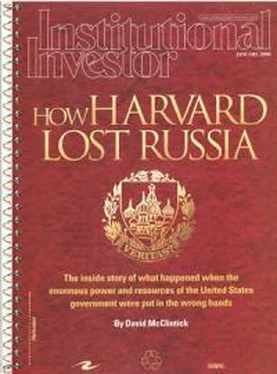The key to a war machine economy is to never actually fight an organized army, which would be dangerous. Best are proxy wars. A war machine economy – not an actual Stalin-like war economy – is the goal.
The chief advantage of a war machine economy is that it is not necessary to win wars; in fact, winning is a detriment, a threat to the machine. Contrarily, in a war economy, not winning is not an option, a proposition best avoided.
Ugly truth: Cut back weapons manufacturing and defense jobs now and the entire American enterprise might collapse.
To the individual congressman or Senator, talk of cutting back defense contracts is anathema. Every one of those pocket-stuffing political birds has some defense-related manufacturing in his district, a trick defense contractors learned from the railroads. In the late 19 thcentury after decades of state-subsidized railroad building, there wasn’t hardly a congressional district without a railroad and railway workers, and those workers got what their unions wanted, as did the owners of the railroads.
So there’s all that.
But there’s something more, something even bigger the globalists want so bad out of Russia that they’re willing to risk provoking a nuclear war through encirclement and targeted terrorist intrusions into Russian lands.
When John McCain says Russia is just a gas station, he’s projecting not describing.
What McCain and his ilk really want is to turn Russia into the war machine’s gas station.
The U.S. military is the largest consumer of energy on the planet. If the globalists can supply the armies of the West with Russian oil, then they can eliminate Russian influence in Europe after having gained control of Middle Eastern oil on the cheap. The Mideast’s oil and pipelines under U.S. control are destined to fuel Europe. Mexico, Venezuela, Canada and the U.S. domestic fracking industry will fuel North and South America.
Somewhere along the way to world empire, Africa, and its energy endowment will collapse into imperial hands, and even now the African nations are being slowly undermined by U.S-nurtured shadow wars.
Russian oil is destined to fuel the globalists’ armies, campaigns, and occupations, and the Anglo-American empire will then be secure even in the face of a currency switcheroo (or collapse), and the New World Order in a position to absorb Asia. China will then be in pole position for energy-starvation. Gee, it’ll be FDR’s scheming against 1930s Japan all over again!
Control over Russian energy has been the overarching goal of the entire post-Cold War years. In the 1990s, the Americans tried to get control of Russian gas and oil through the share market they themselves built. But Russian-IMF operation of the domestic bond market the Fed built, crashed that scheme in 1998. American finance lost heart and retreated just prior to the steeply rising price of oil whose proceeds benefited the Russian treasury and not themselves. Bad luck, eh?
That this misfortune to the globalists’ grand scheme coincided with the retirement of the eminently pliable Boris Yeltsin and the emergence of a nationalist-minded and determined Vladimir Putin underlined their setback in red.
Worse, the Russian president has spent the intervening years clawing back the energy sector from the country’s oligarchs and their pals in the West while restoring the Russian people’s legacy of oil, gas, and pipelines. And he has done it without engaging in over borrowing Western capital, which undermined one of the West’s most potent, sovereign-busting weapons, i.e. debt. Unfortunately, Russian companies were not as prudent as the Russian state and were as beguiled by cheap dollar loans as was everybody else.
Thus, two initiatives are explained:
The first is the economic sanctions the US imposed on Russia in 2014, which were meant to bankrupt those Russian firms with large western loans so that the lenders might lay claim to the defaulting firms’ assets. Putin deployed various schemes and subsidies successfully to prevent just such a debacle, which has only led to the piling on of more and more sanctions, some of the country and some of individuals said to be part of Putin’s inner circle.
The second initiative is the nonstop vilification of Vladimir Putin as an individual, which began many years ago and has now grown shamefully loud. The world of diplomacy is traditionally an inordinately polite one, and the U.S.’s personification of Putin as the end all of the Russian evility is extraordinary. Attaching “thug” “murderer,” and “dictator” to every mention of the Russian president speaks to the likelihood that the globalists believe they have agents in place who are eager to betray Putin to reclaim their former cash flows with the assistance of their western allies.
It is this misunderstanding of the country and the people that is the most dangerous to the rest of us. What’s that old saw? “Fool me once, shame on you. Fool me twice, shame on me.”
The Russians will not be fooled twice.
The Many Reinventions of Jeffrey Sachs
By Anne Williamson
Chronicles Magazine
January 16, 2017
https://www.lewrockwell.com/2017/01/anne-williamson/conman-globalism/
“Jeff Sachs is like the March Hare in Alice in Wonderland , moving from cup to cup. He can never return to any country that headvised, since they all hate him.
It happened in Latin America, in Slovenia, in Poland, a few of the Baltic States, and it was the same in Russia. They maintain that he was of no help and that his advice was wrong. He is a bright and brilliant man and I like him very much, but his public campaign has nothing to do with what he was actually doing. Just nothing.”
—Leonid Grigoriev
Jeffrey D. Sachs, the peripatetic “world-renowned economist” who, for over three decades, has been called upon by leftist billionaires, governments, and international organizations to reshape the economies of entire countries and regions, is both the luckiest and the unluckiest of men.
In his own estimation, the unintended consequences that have dogged his long career of advising distressed areas—from Bolivia to Eastern Europe to Russia to Africa—can be laid at the feet of his critics and faint-hearted foreign collaborators along with a shortsighted American foreign-policy community and the institutional failings of a tight-fisted and purblind IMF.
Sachs, a devoted disciple of John Maynard Keynes, got his start as a self-advertised free-market transition specialist when he signed on as an advisor to Bolivia in 1985 (one year after he became a tenured professor of economics at Harvard), and he first gained notoriety with his claim that he “helped Bolivia to negotiate a debt cancellation agreement with its major bank creditors, which became a template for later debt-cancellation operations.”
Though the banks were said to have suffered a smallish haircut (Sachs never did report the actual amount forgiven), the publicity opened doors down Latin America way. Sachs was soon hobnobbing with “leaders from Argentina, Venezuela and Peru.”
Sachs’s advice to Bolivia was to fight hyperinflation by the tried-and-true method of shutting down the central bank’s printing presses. This inadvertently caused the Bolivian tin market to collapse and energy prices to rise tenfold within days, thereby accelerating Bolivia’s transformation into a “cocaine republic,” as the tens of thousands of newly unemployed sought work in the last sector of the economy that showed any vitality: coca farming. Sachs was back in Cambridge, Massachusetts, before any serious critics appeared. Who knew anything about Bolivia anyway? Who cared?
Fortune smiled on Sachs in 1989 when Krzysztof Krowacki, an official in the Polish embassy in Washington, met with him in his Harvard office to ask if the advice Sachs was giving Latin America might be relevant to Poland, which was in a debt and inflationary spiral of her own. His government, Krowacki said, wanted to make reforms. Would Sachs help?
Читать дальше






![Джонатан Димблби - Barbarossa - How Hitler Lost the War [calibre]](/books/385421/dzhonatan-dimblbi-barbarossa-how-hitler-lost-the-w-thumb.webp)





